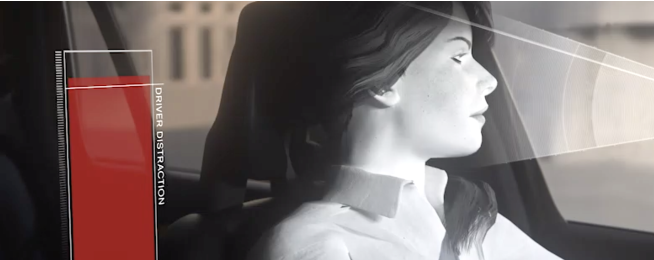New technology will enable a car to identify if its driver is drunk, distracted or tired, and automatically intervene before disaster strikes.
Eye tracking cameras are installed in the vehicle scanning the driver’s eyes for tell-tale signs of behaviour that is unsafe and illegal.
The cameras will appear in models from Volvo as early as next year.
If a driver looks away for a period of time, such as at a smartphone, or fails to keep their hands on the steering wheel, a representative from Volvoʼs on-call assistance centres will call them to check in.
Drivers who arenʼt watching the road, or even have their eyes closed, will be warned as well.
If they donʼt respond, the car will slow and even stop.
The announcement follows recent news that Victorian Police will be trialling related technology that will scan drivers eyes after they are pulled off the road, checking for signs of drug and alcohol use or tiredness.
The technology could give authorities a much needed upper hand over drivers that persist in continuing to drive even though they are unfit to do so.
It is probable that in the future this technology could be used to detect a number of risk factors: alcohol, drugs, prescription medication, fatigue, inattention, distraction, and cognitive decline, including undiagnosed dementia.
Eye tracking technology has proved extremely useful to road safety researchers in recent years, helping to establish that drivers frequently are just not paying attention to the road ahead.
It is also being used extensively by the insurance industry, where a dash cam is combined with a driver cam to establish how driver behaviour contributed to crashes.
But now the technology is advanced enough to understand what the eyes are revealing about what is going on inside the head of the driver.
Volvo recently announcement that it will be limiting the top speed on all of its vehicles to 180 km/h in a bid to reduce traffic fatalities.
Volvo is framing these new policies as key components in its Vision 2020 goal, in which no one is killed or seriously injured in a Volvo vehicle by 2020.
“When it comes to safety, our aim is to avoid accidents altogether rather than limit the impact when an accident is imminent and unavoidable,” Henrik Green, senior vice president for research and development at Volvo Car Group, said.
“In this case, cameras will monitor for behaviour that may lead to serious injury or death.”
Become our friend
Find out more about Bicycle Network and support us in making it easier for people to ride bikes.


